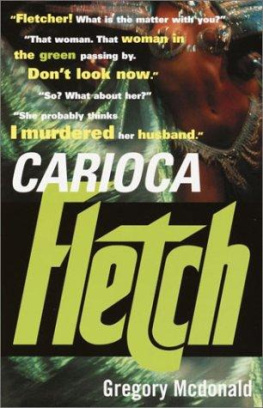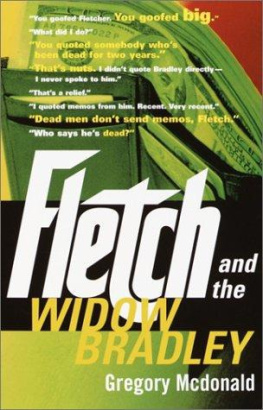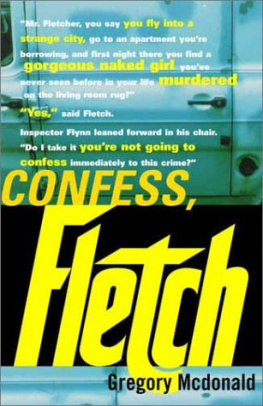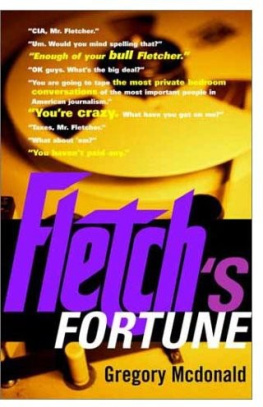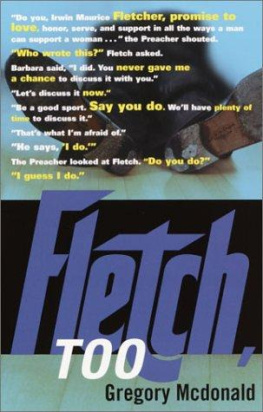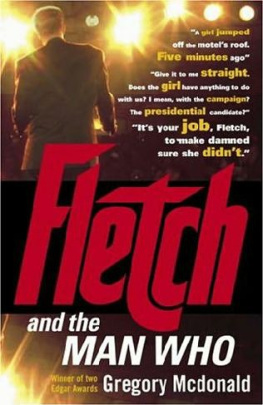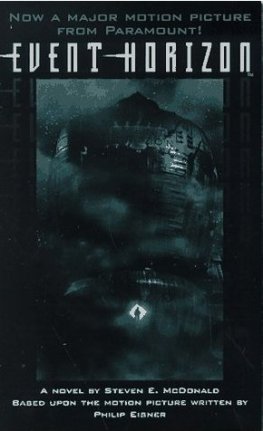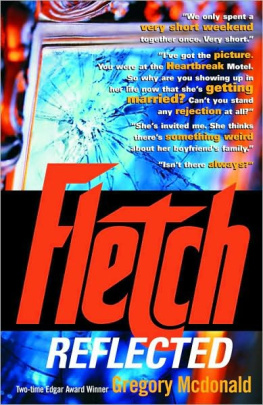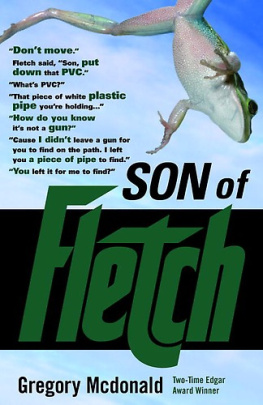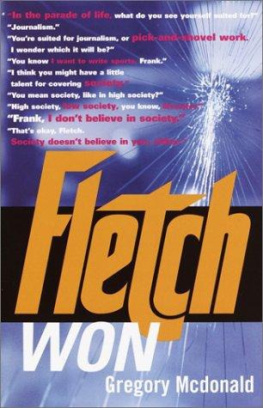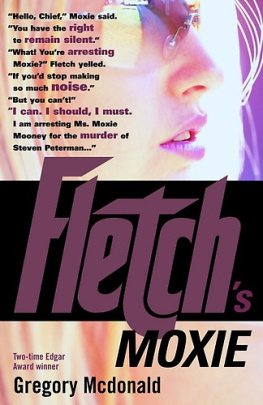Gregory Mcdonald - Carioca Fletch
Here you can read online Gregory Mcdonald - Carioca Fletch full text of the book (entire story) in english for free. Download pdf and epub, get meaning, cover and reviews about this ebook. year: 2002, publisher: Vintage, genre: Detective and thriller. Description of the work, (preface) as well as reviews are available. Best literature library LitArk.com created for fans of good reading and offers a wide selection of genres:
Romance novel
Science fiction
Adventure
Detective
Science
History
Home and family
Prose
Art
Politics
Computer
Non-fiction
Religion
Business
Children
Humor
Choose a favorite category and find really read worthwhile books. Enjoy immersion in the world of imagination, feel the emotions of the characters or learn something new for yourself, make an fascinating discovery.
- Book:Carioca Fletch
- Author:
- Publisher:Vintage
- Genre:
- Year:2002
- Rating:3 / 5
- Favourites:Add to favourites
- Your mark:
- 60
- 1
- 2
- 3
- 4
- 5
Carioca Fletch: summary, description and annotation
We offer to read an annotation, description, summary or preface (depends on what the author of the book "Carioca Fletch" wrote himself). If you haven't found the necessary information about the book — write in the comments, we will try to find it.
Carioca Fletch — read online for free the complete book (whole text) full work
Below is the text of the book, divided by pages. System saving the place of the last page read, allows you to conveniently read the book "Carioca Fletch" online for free, without having to search again every time where you left off. Put a bookmark, and you can go to the page where you finished reading at any time.
Font size:
Interval:
Bookmark:
Fletch
Fletch Won
Fletch, Too
Fletch and the Widow Bradley
Carioca Fletch
Confess, Fletch
Fletchs Fortune
Fletchs Moxie
Fletch and the Man Who
Son of Fletch
Fletch Reflected
Flynn
The Buck Passes Flynn
Flynns In
Skylar
Skylar in Yankeeland
Running Scared
The Brave
Safekeeping
Who Took Toby Rinaldi? (Snatched)
Love Among the Mashed Potatoes (Dear M.E.)
Exits and Entrances
Merely Players
A World Too Wide
The Education of Gregory Mcdonald
(Souvenirs of a Blown World)

Gregory Mcdonald
Carioca Fletch
Gregory Mcdonald is the author of twenty-five books, including nine Fletch novels and three Flynn mysteries. He has twice won the Mystery Writers of Americas prestigious Edgar Allan Poe Award for Best Mystery Novel, and was the first author to win for both a novel and its sequel. He lives in Tennessee.
Naturally the samba drums were beating, rhythms beside rhythms on top of rhythms beneath rhythms. Especially just before Carnival did this modern city of nine million people on the South Atlantic reverberate with the ever-quickening rhythms of the drums. From all sides, every minute, day and night, came the beating of the drums.
You cannot understand the future of the world without first understanding Brazil. That was the way the trim, forty-year-old Brazilian novelist Marilia Diniz spoke. Informative. Instinctual. Indicative. The umbrella over the caf table on Avenida Atlantica shaded her eyes, leaving her mouth in the afternoon sunlight. She shrugged her thin shoulders. Unfortunately, Brazil is beyond anyones understanding.
Marilia sat across from Fletch in a light dress with only straps over her pale shoulders. Marilia Diniz was the rare carioca who never went to the beach.
Laura Soares, more appropriately dressed in shorts, sandals, a halter, more appropriately tanned golden brown, sat to Fletchs right. Laura would always go to the beach.
Fletch was dressed in the uniform he had learned to be innocent, egalitarian: shorts and sneakers.
In front of Marilia and Laura were glasses of beer, chope. Fletch had the drink he liked best in all the world: guaran.
Now that Fletch sees the Praia de Copacabana he will never go anywhere else, Laura said. Maybe I will never even be able to get him to come back to Bahia.
Ill go back to Bahia anytime, Fletch said. If your father lets me.
Hell embrace you. You know that.
I dont know.
The first truth about Brazil, Marilia said, is its absolute tolerance.
Does Brazil tolerate intolerance?
I suppose so. Marilia wrinkled her nose. You see, you cannot understand.
Across the avenida stretched the huge, dazzling Copacabana Beach, from the Morro do Leme to his left, to the peninsula separating Copacabana from the beaches of Arpoador, Ipanema and Leblon to his right.
On the beach, among the brightly colored umbrellas and blankets, were thousands of golden brown bodies, all ages, sexes, their swimsuits so small on them only their skin, really, was visible, exercising, taking turns at the provided chin-up bars, reclining on sit-up boards, running. Within sight on the beach, Fletch counted fourteen soccer games in progress. Small children played at the waters edge, but most of the people in the water were doing disciplined swimming. Proportionately few on the beach were resting. The temperature was thirty-three degrees centigrade, about ninety degrees Fahrenheit; it was four oclock in the afternoon, and the peoples energy shimmered up from the sand more positively than reflected the strong sunlight.
At street corners to the right and left of where they sat drummed samba bands. Boys, men, from fourteen years of age to whenever, beat on drums of various sizes, various tones as if this were their last chance to do so, ever. The band to the right wore canary yellow shorts; to the left, cardinal red shorts. Immediately around each band, pedestrians stayed to give in totally to the samba awhile, dancing on the sidewalk, up and down the curb, among the cars parked pridefully anywhere. One or two drummers might stop a moment to wipe the sweat from their chests, bellies, forearms, drink a chope to make more sweat, but a samba band itself never stops, when it moves, when it stays in one place. A samba bands stopping is as fatal a thought as your own hearts stopping.
And the people passing on the sidewalk in front of the caf, the pedestrians, going from corner to corner, band to band, businessmen dressed only in shorts and sandals, sometimes shirts, carrying briefcases, women in bikinis lugging bags of groceries, barefoot children running with a soccer ball, walked, lugged, ran, keeping the beat of the drums in their feet, their legs, their hips, their shoulders. This moving to the samba instead of just moving gives Brazilians the most beautiful legs in the world, having a true balance, an ideal proportion between muscular calves and slim thighs. The groups of gap-mouthed begging children, the cloth of their shorts worn so it almost did not exist, kept their bare feet moving to the rhythm of the drums, making the stillness, the steadiness of their huge dark eyes the more shocking, imploring. To provide a deception of class difference for the tourists, the caf waiters wore black long trousers and white open shirts and real shoes, but even in their brushing crumbs from the tables, begging children away from someone they had implored too long, they somberly kept the samba beat.
Cidade maravilhosa! In his chair, Fletch stretched his arms over his head.
Mysterious city, said Marilia. Mysterious country.
Fletch said: The guidebook says something like, At first sight of Rio de Janeiro instantly you forgive God for whats visible of New Jersey.
I like New Jersey, said Laura. Isnt that where Pennsylvania is? I thought so.
If you cannot understand the future of the world without first understanding Brazil, Fletch said, I would like to understand more of Brazils past. Granted, I came to Brazil rather quickly, without really expecting to, without being prepared, but once here I can find out very little of Brazils history. Even Lauras father
Laura giggled and put her hand on his thigh. Brazil has no past. Thats what makes us so mysterious.
Marilia shot a glance at Laura. You have not heard of queima de arquivo?
A begging child came by and placed one peanut in front of each of them.
Laura laughed. A while ago a Brazilian airliner crashed on a runway. As anyones airliner might. Within minutes a crew showed up to paint over the Brazilian how-do-you-call-them? insignias on the airplane. It is our way of preventing what has already happened.
It means burn the record, Marilia said.
It means cover up, Laura said. It is the Brazilian way of life. That is why we are so free.
It has happened more than once, Marilia said. A government takes power. In disapproval of all that has gone before, it burns the records of previous governments. Like confession, the idea has been to give us a fresh beginning.
So we are a nation of anarchists, laughed Laura. We are all anarchists.
All histories are shame-filled, Marilia said.
Brazils shames we have expunged by setting fire to them, sending them on the wind.
Font size:
Interval:
Bookmark:
Similar books «Carioca Fletch»
Look at similar books to Carioca Fletch. We have selected literature similar in name and meaning in the hope of providing readers with more options to find new, interesting, not yet read works.
Discussion, reviews of the book Carioca Fletch and just readers' own opinions. Leave your comments, write what you think about the work, its meaning or the main characters. Specify what exactly you liked and what you didn't like, and why you think so.

